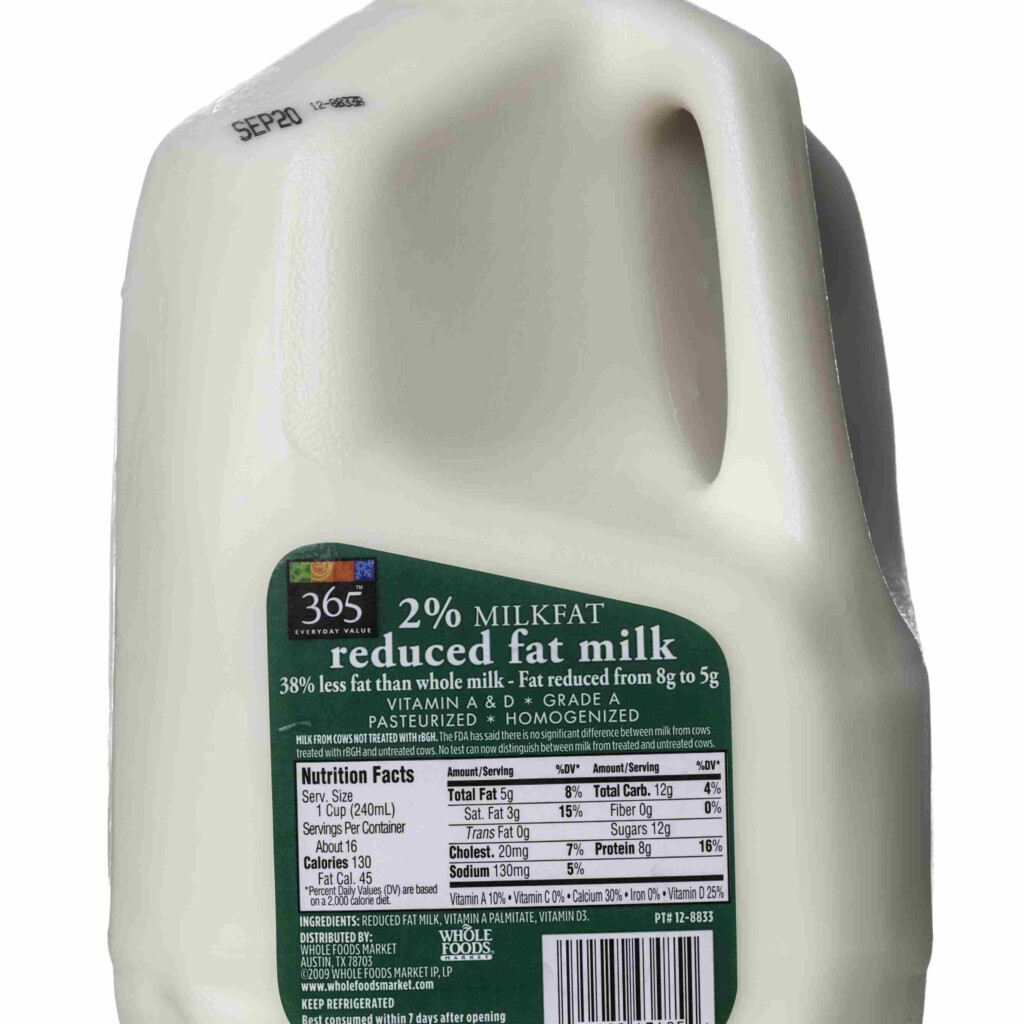Whole milk is a rich source of nutrients that are essential for overall health. It is packed with vitamins and minerals such as calcium, vitamin D, and potassium. These nutrients are important for maintaining strong bones and teeth, supporting a healthy immune system, and regulating blood pressure.
Whole milk also contains protein, which is crucial for building and repairing tissues in the body. Additionally, the fat in whole milk provides a good source of energy and helps the body absorb fat-soluble vitamins.
Whole Milk Nutrition Information
Whole Milk Nutrition Facts
One cup (240 ml) of whole milk contains approximately:
- Calories: 150
- Protein: 8g
- Fat: 8g
- Carbohydrates: 12g
- Calcium: 276mg (22% of the daily recommended intake)
- Vitamin D: 2.5mcg (13% of the daily recommended intake)
It is important to note that whole milk is higher in fat and calories compared to low-fat or skim milk. However, the fat in whole milk is primarily saturated fat, which has been linked to an increased risk of heart disease. It is recommended to consume whole milk in moderation as part of a balanced diet.
Conclusion
Whole milk is a nutritious beverage that provides a variety of essential nutrients. While it is higher in calories and fat compared to other milk options, it can still be included in a healthy diet in moderation. Be sure to check the nutrition label on your milk carton for specific information about the fat, calorie, and nutrient content of the milk you are consuming.
